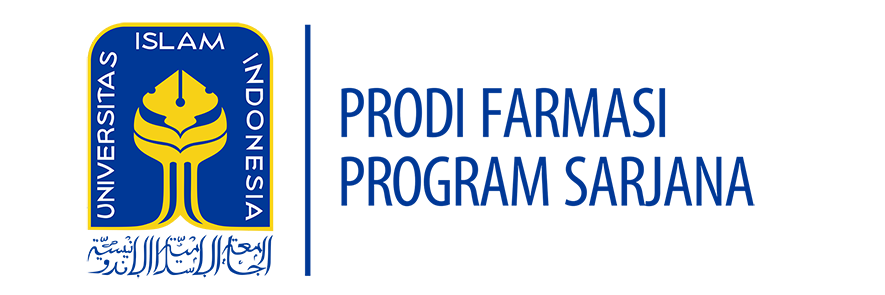COURSE INFORMATION
| Module Name | Cell Biology | ||||
| Module level, if applicable | 1st year | ||||
| Code, if applicable–kode | SFA-109 | ||||
| Semester (s) in which the module is taught | 2nd semester | ||||
| Person responsible for the module | apt. Arde Toga Nugraha.M.Sc | ||||
| Lecturer(s) | apt. Arde Toga Nugraha.M.Sc | ||||
| Language | English-Indonesia | ||||
| Relation to curriculum | Compulsory course | ||||
| Types of teaching and learning | Class size | Attendance time (hours per week per semester) | Forms of active participation | Workload | |
| Lecture | 50 | 1.5 | Discussion | Lectures: 1(hour)x14 meeting | 14 |
| Preparation and follow up : 2.5(hours) x 14(self-learning) | 35 | ||||
| Preparation and follow up: 2.5(hours) x14(group-learning) | 35 | ||||
| Total workload | 84 hours | ||||
| ECTS | 3 ECTS | ||||
| Credit points | 2 CU | ||||
| Requirements according to examination regulations | Minimum attendance at lectures is 75%. Final score is evaluated based on assignment and quiz (45%), mid semester exam (20%), and end semester exam (25%). | ||||
| Recommended prerequisites | – | ||||
| Related course | – | ||||
| Module objectives/intended learning | After completing the course students are able to:
|
||||
| Content | Cell Biology courses in the Pharmacy Curriculum 2017 are given to students of 2nd semester with a weight of 2 credits. This course is a compulsory course. This course aims to support graduate learning achievements in the form of knowledge about the theory and concept of cell biology that can support the mastery of pharmacognosy, microbiology, biomedical sciences and the application of biomedical sciences in the development of pharmaceutical sciences.
The Cell Biology course discusses:
|
||||
| Study and examination requirements and forms of examination | Mid-term, final term, assignment, quiz | ||||
| Media employed | Text books, slides (power points), video | ||||
| Reading lists |
|
||||
REQUIREMENTS
| Requirements according to examination regulations | Minimum attendance at lectures is 75%. Final score is evaluated based on assignment and quiz (45%), mid semester exam (20%), and end semester exam (25%). |
| Recommended prerequisites | – |
| Related course | – |
| Study and examination requirements and forms of examination | Mid-term, final term, assignment, quiz |
MODULE OBJECTIVES/INTENDED LEARNING
By the end of this course students should be able to :
- Explain the relationship between the structure and function of organic macromolecules, cell membranes and cell constituent organelles
- Recognize the differences in procariot cells by using examples of pathogenic microbial cells and eucariot cells by using examples of medicinal plant cells and human cells
- Recognize a variety of cellular activities including metabolism, communication, cleavage cycle, and human cell differentiation
- Describe the organization of life
- Disciplined and responsible in the learning process. Especially discipline and responsibility in the presence and duties given.
CONTENT
Cell Biology courses in the Pharmacy Curriculum 2017 are given to students of 2nd semester with a weight of 2 credits. This course is a compulsory course. This course aims to support graduate learning achievements in the form of knowledge about the theory and concept of cell biology that can support the mastery of pharmacognosy, microbiology, biomedical sciences and the application of biomedical sciences in the development of pharmaceutical sciences.
The Cell Biology course discusses:
- Cell structure and function,
- Eukaryotic and prokaryotic cells and
- Metabolic stage, communication, cleavage cycle, cell differentiation and life organization
MEDIA EMPLOYED
Text books, slides (power points), and video
READING LISTS
- Johnson, A., Alberts, B., Bray, D., Lewis, J., Hopkin, K., Roberts, K., Raff, M., and Walter, P., Essential Cell Biology, 2015, 4rd Ed. Garland Publishing. New York.
- Urry, L.A., Cain, M.L., Wasserman, S.A., Minorsky, P.V., Reece, J.B., Campbell N.A2017, Campbell, Biology, 11th edition, Pearson
